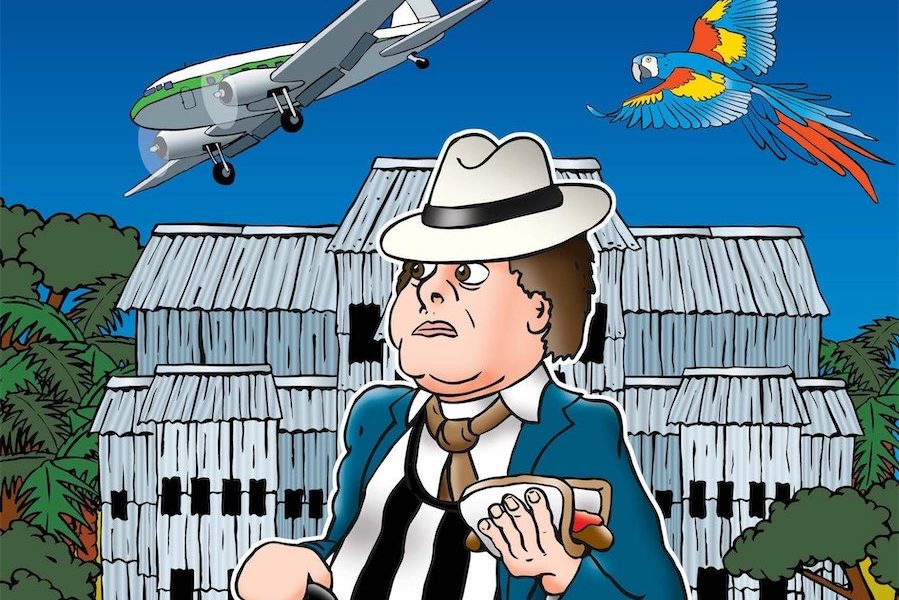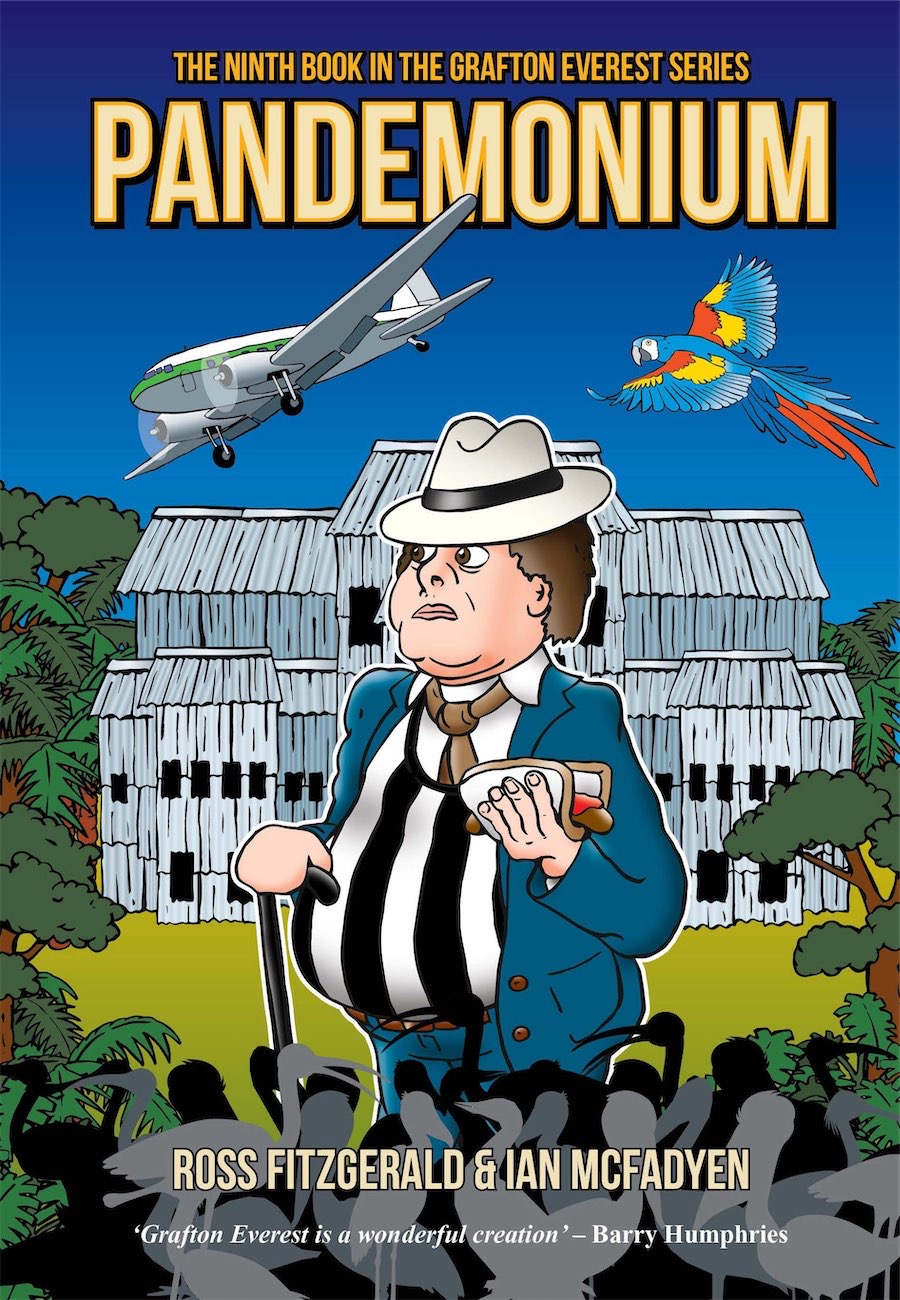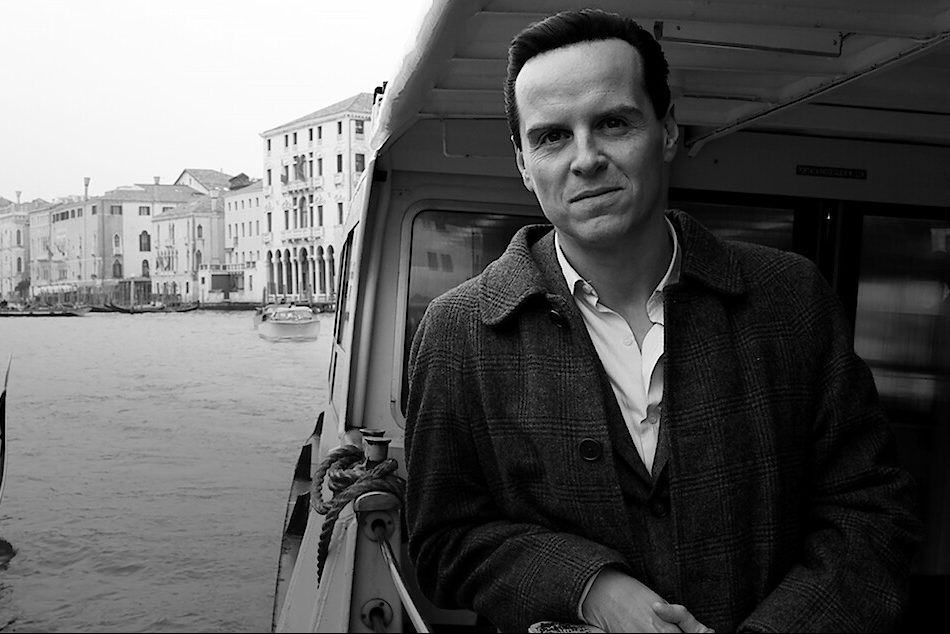
Academic and author ROSS FITZGERALD reflects on the journey to his latest political satire “Pandemonium” and the series’ anti-hero Dr Prof Grafton Everest.
AS some avid “CityNews” readers may know, my latest Grafton Everest political satire “Pandemonium”, co-authored with Ian McFadyen, of “Comedy Company” fame, has just been published.

In it, my anti-hero, Dr Professor Grafton Everest, is the first Australian Secretary-General of the shambolic United Nations.
In its prequel, “The Lowest Depths”, published last year, Russia’s dictatorial president-for-life, Vladimir Putrid, is assassinated. Will life in Russia soon follow fiction? I fervently hope so.
Over the years, academics and critics have claimed to know how Grafton Everest – the bumbling, overweight, teetotal Professor in Life Skills from the University of Mangoland, who is the central character in all my political satires – got his name
One was a professor of linguistics who stated that, after analysing my first four fictions, it was obvious that Grafton Everest was a code for “graft and avarice”.
Another was some mean soul who claimed that my anti-hero’s name obviously derived from Grafton prison, at which I was allegedly incarcerated.
Wrong.
Apart from the occasional night in the cells for “drunk and disorderly” – in Albury and Echuca, where local police once tied me to a goal post – the only time I was imprisoned was at Boggo Road Jail in Brisbane, in 1966.
This was because, when I was a drunken leader of a huge, illegal, anti-Vietnam War march from the University of Queensland to the city, I was charged with the attempted assault of the assistant commissioner of police.
Bizarrely, a few years later, the copper who arrested me and the lawyer who represented me, both became members of Alcoholics Anonymous – which had enabled me to stop drinking on Australia Day 1970.
But I digress.

In early June 1975, I travelled to South Africa with Jonnie Sheen, an ex-student with whom I played cricket for the University of NSW.
When Jonnie expressed a desire to drive through the Kalahari Desert, I responded: “It’s dangerous”.
“Instead”, I said, “Let’s drive to Mozambique and see how the revolution’s going.”
So, we drove via Swaziland, where we won a motza at the casino, playing poker. When we converted our winnings from South African rand to Portuguese escudos, Jonnie and I were fifthly rich, for a while.
When we stopped at the Mozambique border to drive into Lourenco Marques (now Maputo), I asked a border guard: “How are things now that the Portuguese are leaving?”
His response: “It’s the same pile of manure, only the flies are different!”
While we seemed to be the only Europeans driving into Lourenco Marques, loads of Portuguese and others were fleeing the Frelimo guerilla fighters, led by Samora Machel, who soon after became Mozambique’s president.
Jonnie and I observed a number of large vans heading fast for South Africa, via Swaziland. On them all, in bold letters was written GRAFTON EVEREST REMOVALS.
“Grafton Everest”, I said to Jonnie. “What a wonderful name for a character in a novel, whose mother hovers over him like a mountain.”
So that’s the truth of how my woebegone anti-hero got his name.
Although I didn’t know it then, this led to my first Grafton Everest fiction, “Pushed from the Wings”, which savagely lampooned Queensland politics and the parlous state of university life was published in 1986.
But in 1975, Jonnie and I were extremely lucky to escape Lourenco Marques. We vividly remember playing croquet on the manicured lawns of the opulent Hotel Turismo, where we were inhabiting a top-floor suite, hearing the staccato sounds of machine guns firing in the middle distance.
“Pandemonium” is the fourth Grafton Everest adventure that I’ve written with Ian McFadyen.
Our collaboration has been a hoot. At least for me, if not for Ian.
Can you imagine what it’s like having someone like me constantly emailing and ringing at least twice a day for a year – and persistently doing so for the duration of four big books?
What other co-author could cope with someone like me saying, out of the blue: “When he becomes first president of the IRA (the Inclusive Republic of Australia), I’d like Grafton Everest to have a donkey.”
Plus: “I want the Australian prime minister to be a former lover of Grafton’s who is now a morbidly obese lesbian with a Chinese partner – who at the end of her troubled prime ministership, becomes a werewolf.”
And then for Ian to accommodate me, as was the case with the seventh Grafton Everest adventure, “The Dizzying Heights”, which was published in 2019.
In “Pandemonium”, Dr Professor Grafton Everest, the first Australian Secretary-General of the shambolic United Nations, is an essential part of a plan, implemented by a rough-edged Australian diplomat, to avert a looming global disaster.
This plan, strangely, involves Scandinavian furniture and Australian Rules football – my beloved Collingwood Magpies in particular.
Ross Fitzgerald AM is emeritus Professor of History and Politics at Griffith University. The Grafton Everest political satires “Pandemonium” and “The Lowest Depths” are published by Hybrid in Melbourne and are available online.
Who can be trusted?
In a world of spin and confusion, there’s never been a more important time to support independent journalism in Canberra.
If you trust our work online and want to enforce the power of independent voices, I invite you to make a small contribution.
Every dollar of support is invested back into our journalism to help keep citynews.com.au strong and free.
Thank you,
Ian Meikle, editor





Leave a Reply